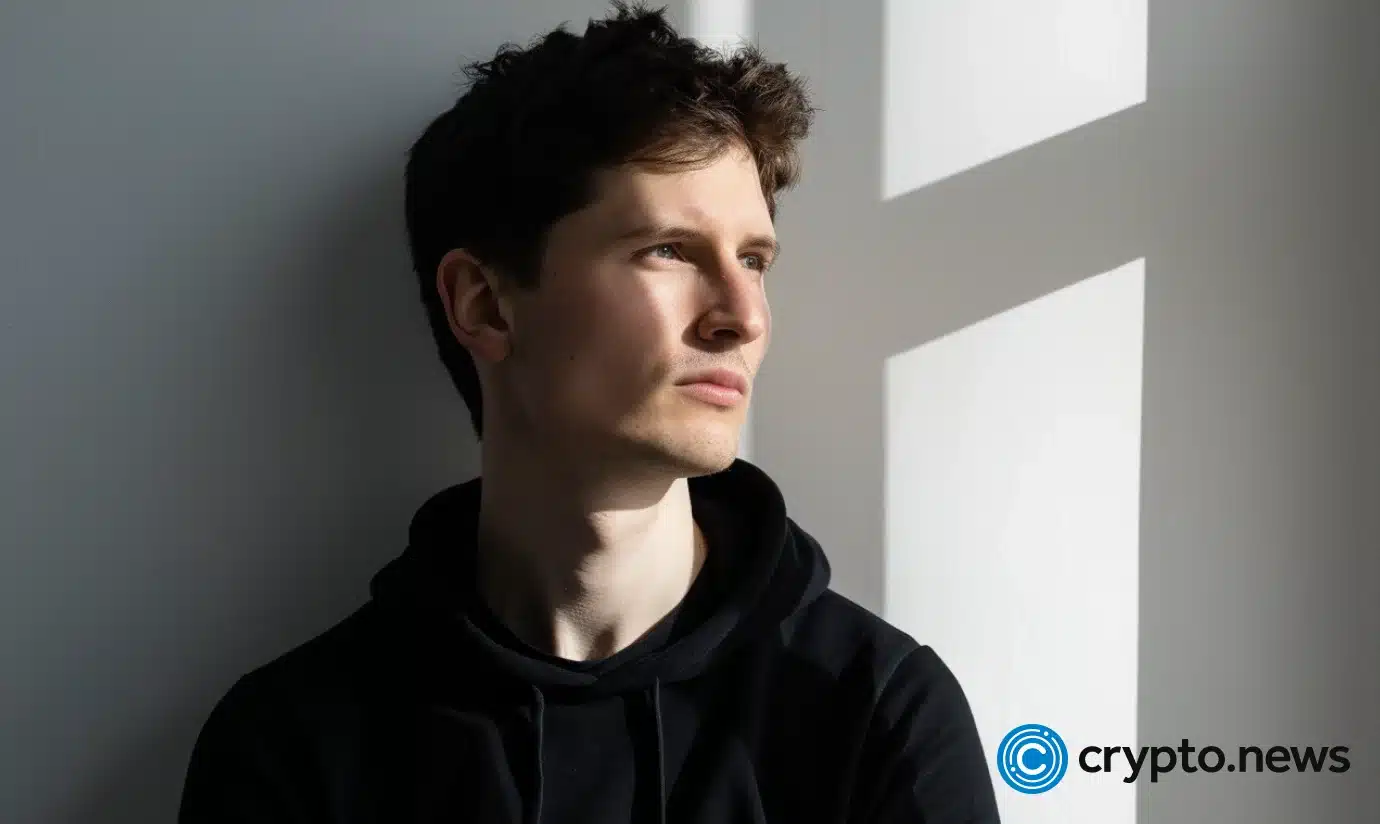Telegram Founder Praises Privacy In Crypto, Worries About Future Of Secure Hardware

In an interview with Tucker Carlson, the elusive Telegram CEO Pavel Durov emphasized that crypto’s focus on privacy and security may soon be undermined by surveillance hardware.
Despite the increasing role of governments as they involve themselves in privacy matters, Telegram CEO Pavel Durov is still optimistic about the future, saying those who care about privacy could still preserve it with technologies, similar to the ones already developed in the crypto industry.
In a recent interview with Tucker Carlson, Durov suggested there will be new hardware communication devices created, as the matter of online privacy becomes more evident. Commenting on the matter, the Telegram CEO noted that the crypto market has already solved that problem, referring to hardware crypto wallets.
“I’m an optimist. I think some new secure hardware communication devices will be created in a similar way that now we have hardware wallets to store your cryptocurrency. Maybe we’ll have secure communication devices to send messages or do voice calls.”
Pavel Durov
Speaking on other crypto-related ventures, Durov mentioned Telegram’s brainchild The Open Network, which faced opposition from the U.S. Securities and Exchange Commission (SEC) in 2019.
“To be completely fair, Telegram did take outside money, we issued bonds three years ago… and before that, we had a a cryptocurrency project that also raised funds. There were instances where we raised outside funding. But when it comes to the company’s equity, we didn’t give anyone ownership or voting control or anything like that.”
Pavel Durov
In October 2019, the SEC issued a restraining order against Telegram, preventing the company from launching its planned token dubbed Gram. The SEC alleged that the company’s initial coin offering (ICO) violated securities laws by offering unregistered securities to investors.
In early 2018, Telegram raised approximately $1.7 billion through the sale of its Gram tokens to private investors. However, the SEC alleged that the company had failed to register to sell 2.9 billion digital tokens to initial investors worldwide, including $1 billion to U.S. buyers.
Despite the ban, Telegram’s blockchain venture survived, initially driven by blockchain enthusiasts who supported its principles. Later, however, Telegram’s ties to the TON ecosystem deepened, with the addition of Toncoin, the project’s native cryptocurrency, as a payment method in its advertising revenue-sharing system for channel owners.
The entire hour long video contained many other juicy tidbits, including why Durov decided to move Telegram’s offices to Dubai, and the situation involving an attempted robbery after the CEO met then Twitter CEO Jack Dorsey in San Francisco.
Crypto Firms Push Into US Banking
America’s cryptocurrency companies are scrambling to secure a foothold in the country’s traditional banking system, ... Read more
Ether Surges 16% Amid Speculation Of US ETF Approval
New York, USA – Ether, the second-largest cryptocurrency by market capitalization, experienced a significant surge of ... Read more
BlackRock And The Institutional Embrace Of Bitcoin
BlackRock’s strategic shift towards becoming the world’s largest Bitcoin fund marks a pivotal moment in the financia... Read more
Robinhood Faces Regulatory Scrutiny: SEC Threatens Lawsuit Over Crypto Business
Robinhood, the prominent retail brokerage platform, finds itself in the regulatory spotlight as the Securities and Excha... Read more
Ethereum Price Holds Five-year Range As Breakdown Risk Points To $950
The current Ethereum price is within a long-term five-year range and positioned below key volume levels, increasing the ... Read more
400 Million Coins Left: BlockDAGs $0.0005 Entry Price Is About To Vanish Forever
BlockDAG is entering its final presale hours at a fixed price of $0.0005, with only 400 million coins remaining before p... Read more

